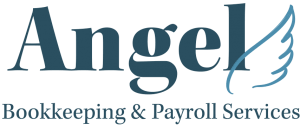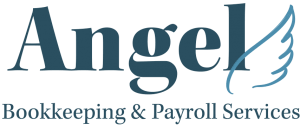When starting a business, finances are a task that can’t be avoided. From sending invoices to filing tax returns, these are part and parcel of running a company, and even tiny start-ups need to be ticking the boxes of good financial housekeeping. But, if you don’t have any experience with small business bookkeeping and money management, where do you start?
We’re here to help. At Angel Bookkeeping and Payroll Services, we’ve been supporting start-ups and small businesses with their financial management for years. We know what you need to begin organising your money, and we’ve put together some of our top tips in this guide.
Let’s dive straight into tip #1.
1. Separate Business and Personal Banking
Whether you’re self-employed or building a start-up, our first piece of advice is to separate your business and personal finances as soon as possible. The best way to do this is by opening a business bank account and using it to deal with all of your incomings and outgoings.
Separating your personal and business finances brings a number of business benefits, including making it easier to:
- Track your cash flow
- Keep a record of your income and expenses for your tax returns
- Maintain proof of your deductible expenses in case of a tax audit
- Spot discrepancies, like an unpaid invoice or an overcharged bill
- Build a business credit history, which can improve financing opportunities
Business bank accounts don’t have to be costly, either. There are a fair few banks offering simple, no-frill business accounts at no extra charge, including Starling, Natwest, and Monzo (note that there can also be paid business accounts available at these banks).
2. Keep Records of Your Cash Flow
Maintaining records of your cash flow is a legal requirement for businesses. Your records need to support your tax calculations, providing proof that the income and expenses you’ve reported are accurate.
In the UK, you need to keep your financial records for 6 years. You may need to maintain records for longer if, for example, you’ve bought an item that you expect to last longer than 6 years or you’ve submitted a late tax return.
To ensure compliance, make sure you have a record-keeping system in place. Creating a business bank account is a good start, but you’ll also need to properly store financial documents like invoices, contracts, receipts, and petty cash books.
At Angel Bookkeeping and Payroll Services, we use cloud-based bookkeeping software to maintain digital records for our clients. This ensures that your records are easily accessible at all times, and there’s no danger of losing or misplacing paper documents. It’s more organised, reducing the stress of financial record-keeping.
3. Monitor Your Cash Flow
Alongside recording your cash flow, make sure you’re monitoring the money flowing in and out of your business.
For instance, if you send digital invoices, you’ll need to keep tabs on the invoices you’ve sent, the payment terms, and when they’ve been paid. A clear, organised system will help you quickly identify when an invoice is past-due, and you can then get in touch with your client to remind them of their outstanding balance.
Keeping up-to-date with your money is a time-consuming and ongoing task. If your to-do list is already long enough, we can take care of monitoring your cash flow for you (including tracking invoices and following up on unpaid receivables).
4. Get to Grips With Tax Deadlines
One of the clearest signs of an unorganised financial system is when your tax returns are submitted at the last moment. To take control of your bookkeeping and avoid the last-minute panic, make sure you’re aware of important tax deadlines.
We recommend popping key dates in your calendar. For sole traders and partnerships, these include:
| Task | Deadline |
| Registering for Self Assessment | 5th October |
| Sending your paper tax return | Must be received by HMRC by the 31st October |
| Submitting an online tax return | 31st January |
| Paying your Self Assessment tax bill | 31st January |
For limited companies, where deadlines can be unique to your business, use the information provided by the UK government to learn more about your accounting period and when to submit tax returns and accounts.
Tasks involved with tax preparation include tracking your cash flow, organising your financial documents, and calculating your total income. Don’t have time to do this yourself? We’ve got you covered with tip #5.
5. Hire Professional Bookkeepers in Sussex
Organising your small business finances is a tricky and time-consuming task.
When you’re already implementing your marketing strategy, helping customers, and developing new products, monitoring your money can fall to the wayside. But it’s a task that needs to be done. Putting it off now only leads to more stress later, and risks your business incurring hefty legal penalties for missed deadlines.
The simple solution? Work with our team of professional bookkeepers. We take the stress out of managing your finances for good.
Our local, fully-qualified bookkeepers work with clients across Sussex, including in Worthing, Brighton, Chichester, and Haywards Heath (take a peek at the full list of areas we cover to learn more).
We can take care of all your bookkeeping and payroll tasks, from sending invoices and digitising receipts to bank reconciliations and financial reports. We’ll use your data to help your next business steps, too, providing crucial advice to ensure your ideas align with your finances to keep your business up and running.
With a friendly team and a fleet of cloud-based bookkeeping software at our fingertips, we’re all you need to manage your small business finances.
Get a Quote for Small Business Bookkeeping in Sussex
Want to learn more about our professional bookkeeping services? Book a free 20-minute call with one of our qualified bookkeepers to chat more about your money. We’ll also be happy to give you a quote for our services based on your money management needs.
When it comes to organising your small business finances, we’re the only team you need.

